Aug 14
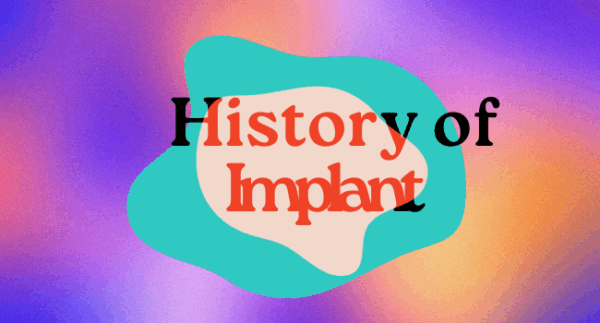
Help Us Protect Access to Sexual and Reproductive Health Care Today!
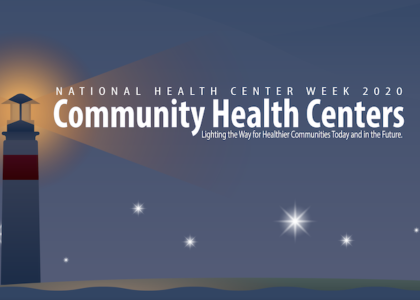 Community Health Centers are the backbone of our nation’s primary care infrastructure and are central to the Reproductive Health Access Project’s origin story. Our three co-founders all worked together at a large community health center in New York City in the late 1990s. Their efforts to integrate abortion care into their health center laid the groundwork for creating the organization that became RHAP. CHCs hold so much potential for expanding equitable access to reproductive health care and are still an important part of RHAP’s work today.
Community Health Centers are the backbone of our nation’s primary care infrastructure and are central to the Reproductive Health Access Project’s origin story. Our three co-founders all worked together at a large community health center in New York City in the late 1990s. Their efforts to integrate abortion care into their health center laid the groundwork for creating the organization that became RHAP. CHCs hold so much potential for expanding equitable access to reproductive health care and are still an important part of RHAP’s work today.
CHCs are located in medically underserved areas and are dedicated to bringing high quality health care to the communities they serve. Many receive federal subsidies that allow them to eliminate or greatly minimize financial barriers to health care. But, there are structural issues that prevent many CHCs from providing comprehensive reproductive health care. For example, those receiving federal funding have to comply with the Hyde Amendment, which makes it difficult, but not impossible, to provide abortion care. Each CHC is also governed by a board comprised primarily of community members who may not value access to reproductive health care.
CHCs have been hit hard by the pandemic. As a critical source of community care, CHCs are on the front lines diagnosing and managing COVID in their communities. Many are also absorbing financial losses related to the economic impact of the pandemic. It is critical that we ensure that CHCs have the resources they need to continue providing their communities with high quality care. In August, from the 9-15, CHCs across the country are coming together for a week of action to highlight the amazing work they are doing. Join us in supporting CHCs.
Hear Ruth Lesnewski’s, one of RHAP’s co-founders, experience on the significance of providing reproductive health care in a CHC. Find out how you can support your local community health center during the August 2020 week of action.
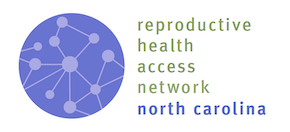 “I am proud that many of my primary care colleagues took a stance against the NC HB 918, favoring more equitable care and working to eliminate barriers for marginalized communities. This bill threatened to dismantle the foundational family unit, disproportionately affecting families afflicted by systemic racism and poverty. Taking a stance against HB 918 communicates our commitment to achieving a more unbiased and nondiscriminatory health care system for North Carolinians.” – Keyona Oni, MD | North Carolina Cluster AAFP Liaison
“I am proud that many of my primary care colleagues took a stance against the NC HB 918, favoring more equitable care and working to eliminate barriers for marginalized communities. This bill threatened to dismantle the foundational family unit, disproportionately affecting families afflicted by systemic racism and poverty. Taking a stance against HB 918 communicates our commitment to achieving a more unbiased and nondiscriminatory health care system for North Carolinians.” – Keyona Oni, MD | North Carolina Cluster AAFP Liaison
On June 18th, leaders in the North Carolina Cluster received word that House Bill 918, a bill criminalizing pregnant people for substance use, moved swiftly through the Committee on Rules and Operations and was poised for a full vote on the Senate floor.
The North Carolina bill makes positive prenatal drug screening tests grounds to separate newborns from their parents and expedites the termination of parental rights. The threat of family separation and prosecution deters pregnant people from seeking prenatal care and addiction treatment.(1) Local groups like The North Carolina Urban Survivors’ Union, a grassroots harm reduction organization dedicated to protecting the rights of drug users, have played a critical role in amplifying the harmfulness of HB 918 and centering the voices and autonomy of drug users and their families.
HB 918 would be disproportionately weaponized against poor communities of color. A 1990 study conducted in Pinellas County, Florida found that although Black women and white women had similar rates of positive drug tests, Black women were 10 times more likely to be reported to authorities than white women. (2) HB 918 stems from the long and racist legacy in this country of violently prescribing criminal intervention for Black and Brown communities instead of equitable public health initiatives.
North Carolina Cluster members quickly mobilized as HB 918 headed to the Senate floor. Members persistently sent emails to Senators, highlighting their position as medical experts who denounce HB 918 and the criminalizing of medical care. The Cluster listserv was constantly flooded with updates and encouragement from colleagues after receiving responses from Senators who were thankful to hear from clinicians and who planned to vote against HB 918. A contingent of family physicians within the North Carolina Cluster also called upon the North Carolina Academy of Family Physicians to issue an official statement opposing the bill. (3) Unfortunately on June 24 HB 918 passed in the Senate (25 -20) and moved on to pass in the House (59-53). Fortunately, however, after receiving waves of veto requests from North Carolinians, Governor Roy Cooper vetoed the bill on Thursday, July 2nd. (4)
As an Organizer at RHAP, witnessing the mobilization and peer-support of the North Carolina Cluster community was motivating. Seeing how clinicians’ can leverage their positions as medical experts and organize alongside grassroots initiatives reminds me of how inherently connected our reproductive health advocacy in primary care is to other social justice movements.
Showing up for patients in and outside of the clinic brings us closer to a reality where everyone can truly access equitable, person-centered health care.
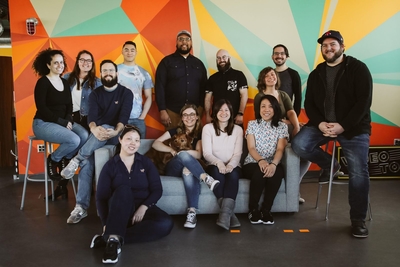 Wistia is a software company that helps businesses build their brands with video. Their mission is to make business more human, and part of that includes a focus on diversity, equity, and inclusion. In 2019, when Georgia passed legislation restricting access to abortion, Wistia spoke up as a company in support of reproductive rights and abortion. In addition, they pledged a recurring donation to the Reproductive Health Access Project.
Wistia is a software company that helps businesses build their brands with video. Their mission is to make business more human, and part of that includes a focus on diversity, equity, and inclusion. In 2019, when Georgia passed legislation restricting access to abortion, Wistia spoke up as a company in support of reproductive rights and abortion. In addition, they pledged a recurring donation to the Reproductive Health Access Project.
Wistia runs its business on a subscription-based model, which has given them the opportunity to grow and reinvest in the business. Understanding how impactful this recurring payment model has been to their success, Wistia wants to be able to offer a dependable stream of funding to organizations they support so they can grow with confidence, too.
Brendan, Wistia’s CTO, first heard about RHAP from his wife who is a family medicine doctor. She’s been an advocate for integrating abortion care into primary care practice and has seen firsthand how beneficial and important this can be for patients.
Wistia is proud to support RHAP in advancing this mission!
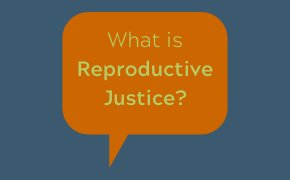 As part of RHAP’s ongoing commitment to anti-racism, we wanted to share with you ways to learn with us about the history of injustice in reproductive health and how reproductive justice has become a vital part of reproductive equity.
As part of RHAP’s ongoing commitment to anti-racism, we wanted to share with you ways to learn with us about the history of injustice in reproductive health and how reproductive justice has become a vital part of reproductive equity.
The term reproductive justice was developed by Black women in 1994, addressing the need for a movement that uplifted the reproductive health needs of marginalized women, such as women who identify as BIPOC or as LGBTQ+. Sistersong defines reproductive justice as “the human right to maintain personal bodily autonomy, have children, not have children, and parent the children we have in safe and sustainable communities.” RHAP is committed to rooting our values in action, and one part of that is incorporating the reproductive justice framework into our own work. This month, we want to highlight some resources that serve as an introduction to reproductive justice (RJ).
A primer on reproductive justice and social change
A timeline of the development of reproductive justice (in English and Spanish)
A guide to identifying issues in your community through an RJ lens
Loretta Ross, one of the founding mothers of RJ, discusses the Black feminist roots of RJ
Naa Hammond explains the intersectionality that grounds reproductive justice
This article was written by our summer intern, Vishu Chandrasekhar. Vishu is supported by the Civil Liberties and Public Policy Program.
Your gift allows us to train and support health care providers across the United States so they can offer patients compassionate and comprehensive care.
Aug 14
